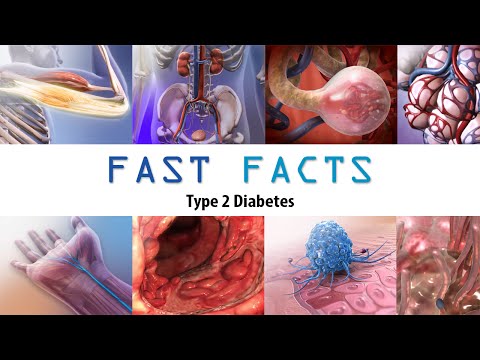The human mind is a busy place. Our thoughts are connected to emotions, decisions, and reactions. Understanding these cognitive processes can feel like finding your way around a maze of complex emotions and experiences. Counselors act as guides, pointing the way toward mental well-being. Professional expertise is essential, and genuine human empathy helps individuals grapple with cognitive journeys. In this article, we look at counseling and unveil how these dedicated professionals balance their clinical knowledge with an authentic and compassionate understanding of their clients’ inner worlds.
Understanding cognitive processes

The concept of normative cognitive processes is central to personal growth and development. These processes cover the important milestones and cognitive abilities that individuals typically encounter as they progress through various life stages, from an infant’s cognitive exploration to a child’s transition to adulthood. Cognitive skills, such as memory, attention, and problem-solving, evolve from infancy to adolescence and eventually into adulthood. From an early age, people identify what is considered normal by observing the people and situations around them. As they grow up, they adopt these norms and then expect others to do the same.
An online master’s in mental health counseling prepares students for a counseling career. Reputable online universities, such as St. Bonaventure, offer remote learning for the coursework element of their qualifications. These programs include building skills and knowledge around different cognitive processes and teaching students how to help individuals improve their mental health. Students still benefit from in-person work placements, but the largely online nature of these programs makes learning and working in the counseling industry more accessible and achievable.
While normative cognitive processes are an inherent part of human growth, they are not without their challenges. Cognitive biases can develop and be enforced over generations, such as confirmation bias and anchoring, Confirmation bias is the term used when individuals interpret information using their existing beliefs. Anchoring is a similar process, where individuals ignore information presented to them when this presents new or alternative views to previous information they were given. Problems can occur when people unintentionally ignore anything that questions or conflicts with what they think they already know. This can prevent personal growth or limit how much positive change is made. These biases can also impact decision-making and problem-solving.
Unraveling non-normative cognitive processes
Non-normative cognitive processes happen when the mind’s journey takes unexpected turns, often diverging from the well-trodden path of normative development. There are also conditions and experiences that set individuals apart from the norm. These can include those with ADHD, autism spectrum disorders, and intellectual disabilities.
Cognitive deviations can have triggers and underlying causes. These include genetics, environmental influences, trauma, and neurobiological factors. Triggers can affect cognitive functioning and emotional well-being. Understanding the origins of non-normative cognitive processes is a crucial step in tailoring effective counseling interventions to address the unique needs of individuals experiencing cognitive deviations. It’s worth pointing out that cognitive deviations are not always negative.
It can be more harmful to the well-being of individuals who deviate from the norm if they try to force themselves to “fit in” with everyone else. Instead, differences should be supported, and methods of co-existing alongside others should be taught. Advocating for neurodiverse people is also important for helping them to be accepted for who they are. “Thinking outside the box” is a common way that innovation and improvements are achieved. So, it benefits society to embrace those who don’t fit the norm.
For example, someone with ADHD who experiences hyperfocus may find themselves exceptionally productive and creative when working on tasks they are passionate about. They may dive deeply into a project, exhibit remarkable attention to detail, and generate innovative ideas. This heightened focus can enable them to excel in certain professions or hobbies that require intensive concentration, such as creative arts, programming, or research. Some employers might not see the positives of this, instead focusing on the person’s lack of social skills and contributions to office talk while they are absorbed in a task. However, being able to tune out noise in a busy environment helps them be productive.
As a counselor, you would guide this individual with ADHD through their personal challenges in fitting in or dealing with negative attitudes. You would help them see the value their condition brings. Or you could be involved in workplace training that educates employers and employees in the way non-normative cognitive processes can contribute positively to their teams and benefit their companies. This increases acceptance and understanding.
Looking through changes in recent decades highlights the transformations that have already been made. People are already starting to gain a deeper understanding of non-normative cognitive processes. Advancements in neuroscience, psychology, and psychiatry have led to more effective therapeutic interventions, focusing on the importance of evidence-based practices and interdisciplinary collaboration. We are now in an era where mental health is gaining the recognition it deserves. Counselors play a big part in navigating this changing terrain, offering hope and support to those with non-normative cognitive processes.
Assessing cognitive processes
The first step in helping individuals work through their cognitive processes is a thorough assessment. This involves a range of diagnostic tools and evaluation techniques and is used by counselors to gain valuable insights into a client’s cognitive functioning. From standardized psychological assessments that measure cognitive abilities to clinical interviews that uncover cognitive biases and patterns, these methods can gather essential information.
Every client is unique, and their cognitive processes are shaped by their individual experiences and challenges. Even if two people experience the same upbringing and are involved in the same traumatic event, there will be differences in how they react and the ways they are affected. The counselor will adapt their therapeutic approaches to suit the specific cognitive needs and circumstances of each client. A personalized approach enhances the effectiveness of counseling. Whether addressing normative cognitive processes or helping individuals navigate non-normative deviations, tailoring interventions ensures that clients receive the support and guidance they require to achieve meaningful cognitive growth and transformation.
Cognitive restructuring is a powerful technique used by counselors to help clients identify and challenge irrational or negative thought patterns. It plays an important role in reshaping cognitive processes, as counselors guide clients in reframing their thoughts, fostering healthier cognitive habits, and ultimately promoting emotional well-being.
If, for example, a person with ADHD starts working as a graphic designer, they may find themselves often hyper-focused on their design projects. This results in creating remarkable pieces of work. However, this hyperfocus can also lead to missed deadlines for other clients and strained relationships due to a perceived lack of attention.
In counseling, cognitive restructuring can help this person by identifying and challenging negative thought patterns associated with their hyperfocus. They can learn to recognize when hyperfocus is occurring and employ cognitive strategies to set boundaries and allocate time for different tasks. They might use cognitive reframing to shift their perception of hyperfocus from a “problem” to a “tool” they can control. By doing so, they gain better control over their cognitive processes, by managing hyperfocus more effectively and achieving a healthier work-life balance.
In this scenario, cognitive restructuring transforms a non-normative cognitive process such as hyperfocus into a positive tool for enhanced productivity, improved time management, and ultimately, greater emotional well-being. It illustrates how counseling empowers individuals to leverage their unique cognitive traits to their advantage while addressing any associated challenges.
Behavior modification is another essential cognitive-behavioral technique that counselors use to address cognitive processes. Counselors use the connection between cognitive patterns and behavior to help clients identify and modify maladaptive behaviors stemming from cognitive distortions. Some of the techniques such as reinforcement, self-monitoring, and goal setting, are essential in reshaping cognitive processes and promoting positive behavioral change.
Education is also a powerful tool in counseling. Psychoeducation is the means counselors use to empower clients with knowledge about their cognitive processes. These cover understanding the workings of their own minds, including the neurobiological foundations of cognition. By enhancing clients’ understanding of their cognitive processes, counselors empower them to make informed decisions, develop coping strategies, and take an active role in their mental health journey.
Self-awareness can improve the effectiveness of therapy. Counselors help clients gain insights into their thoughts, emotions, and behaviors. By encouraging self-reflection and self-exploration, counselors enable clients to develop self-regulation and personal growth. Through a combination of knowledge and introspection, clients can work towards positive cognitive changes and improved mental well-being.
For example, a client could be struggling with anxiety and low self-esteem. The counselor would help them identify the situations, people, or thoughts that trigger the anxiety. Together, the client and counselor would explore the emotions felt during an anxiety attack, uncovering negative core beliefs that the client tells themselves, and understanding behavioral patterns. This would lead to self-reflection and self-regulation. The outcome would be personal growth as the patients challenge and reframe their negative beliefs and make positive changes to improve their mental well-being.
Addressing normative effects
Throughout different stages of their lives, individuals encounter various normative effects that influence their cognitive processes. Counselors play a vital role in guiding individuals through these milestones, providing support, and fostering growth.
Adolescence is a time marked by profound cognitive and emotional changes, and identity formation is at its core. Counselors assist adolescents in navigating the complexities of self-discovery, peer pressure, and identity crises. Counseling strategies facilitate healthy identity development, equipping adolescents with the cognitive tools needed to shape their identities positively.
Midlife often brings cognitive shifts, as individuals reassess their goals and values. Cognitive processes, such as introspection and existential questioning, are addressed in counseling. This provides a supportive space for individuals to navigate these changes, creating growth and resilience.
For example, someone could be struggling with the physical changes in their body, and how this impacts what they are able to do. If they were previously involved in strenuous physical activities such as marathon running, or belonged to a sports team, they need to adapt to change. This could be reducing how often they take part or switching to other activities that are more suitable for them. That means they are no longer part of a particular group or lifestyle.
Stress and anxiety are normative responses to life’s challenges, but they can impact cognitive processes significantly. Counselors teach clients coping strategies that enhance cognitive resilience. From mindfulness techniques to cognitive-behavioral interventions, clients are empowered to manage stress and anxiety effectively while maintaining cognitive clarity.
Resilience and emotional intelligence are critical cognitive skills when facing normative stressors, such as getting married, moving home, changing jobs, or retiring. Counselors help individuals cultivate these skills. Therapeutic approaches can help improve adaptability, self-awareness, and emotional regulation.
Life is full of decisions that challenge cognitive processes. Counselors guide individuals in making informed choices during small or major life transitions. They introduce decision-making models, discuss cognitive biases that can influence choices, and empower clients to weigh rationality against emotionality in decision-making.
The connection between rational and emotional cognitive processes is central to decision-making. Counselors delve into cognitive-behavioral strategies with the client. These enhance decision-making by overcoming cognitive biases and promoting emotional intelligence. By improving cognitive clarity and emotional self-regulation, counselors equip clients to make the best choices for them.
Managing non-normative effects
Non-normative cognitive processes often stem from experiences of trauma, addiction, or severe mental disorders. Counselors have specialized approaches to alleviate these effects and promote healing and recovery.
Trauma has profound and enduring effects on cognitive processes. Counselors identify and address trauma-related cognitive processes. They help clients understand manifestations of trauma, including intrusive thoughts and hypervigilance, and use therapeutic strategies that promote healing and resilience.
Eye movement desensitization and reprocessing (EMDR) and other trauma-focused therapies are powerful tools for trauma counseling. These therapies specifically target trauma-related cognitive processes, offering individuals a path toward resolution and emotional healing.
Addiction and dependency are complex conditions rooted in cognitive processes. These can stem from trauma. Therefore, addiction can also often be dealt with by dealing with trauma. Recovery from addiction and dependency encompasses cognitive, emotional, and behavioral aspects. Counselors address non-normative cognitive effects such as abuse, loss and grief, the breakdown of a long-term relationship, or a challenging health diagnosis. Cognitive restructuring alongside mindfulness can help make positive lifestyle changes and promote lasting recovery and cognitive well-being.
Severe mental disorders such as schizophrenia and bipolar disorder profoundly impact cognitive processes too. Individuals with these disorders face cognitive deficits, mood swings, and delusions. The counselor’s role in providing support, education, and therapeutic interventions is tailored to the unique cognitive needs of each client with a severe mental disorder.
The treatment of these severe mental disorders often involves a combination of medication and psychotherapy. Counselors collaborate with other mental health professionals to provide comprehensive care. Understanding the cognitive effects of medication and the therapeutic aspects of psychotherapy, including cognitive-behavioral therapy and dialectical behavior therapy, is central to helping the client.
The evolution of counseling and psychotherapy
The journey of counseling and psychotherapy is marked by pioneers who have shaped its course. From Sigmund Freud’s groundbreaking psychoanalysis to the humanistic approach of Carl Rogers, these visionaries laid the foundations for understanding and addressing cognitive processes. Their contributions have influenced the diverse therapeutic approaches we have access to today.
Over time, counseling and psychotherapy concepts have shifted, reflecting changing ethical frameworks. Counselors have embraced a more person-centered and culturally sensitive approach. This evolution has also brought ethical considerations to the forefront, emphasizing the importance of confidentiality and informed consent.
Stigma has also been reduced in recent decades. There was a time when people with mental illnesses were admitted to hospitals and never released. Families and friends preferred to keep them away. Thankfully, there is a more accepting attitude now. Stigmatization can deeply affect cognitive processes, exacerbating emotional distress and diminishing self-esteem. So, this progress is particularly crucial. Discrimination and bias can also internalize as negative self-perceptions, affecting mental health. Recognizing this, counselors strive to further destigmatize mental health issues.
To help combat stigma, counselors actively promote open dialogue in society. They engage in advocacy and education to increase awareness and empathy for those experiencing cognitive challenges. By challenging stereotypes and creating inclusive conversations, counselors contribute to a more accepting and supportive environment for individuals navigating the complexities of their cognitive processes.
Counselors address both normative and non-normative cognitive processes, offering personalized guidance through developmental milestones and complexities, such as trauma or addiction. They also contribute to rethinking mental health stereotypes and destigmatizing cognitive challenges, paving the way for a more compassionate and inclusive society. There is an ever-present need for counselors. In today’s world where the intricacies of human cognitive processes continue to shape our lives, counselors promote understanding, resilience, and growth. Embracing the complex nature of human cognitive processes, as a counselor, is more than just a career choice. It’s a chance to contribute to the improvement of mental well-being in communities and individuals.










Pingback: Top 6 Tips To Choose Best Plus Size Women Suits
Pingback: Best 3 PT Exercises You Can do At Home and Work to Relieve Pain
Pingback: Complete Guide To Removing Ear Wax - How to Clean Your Ears